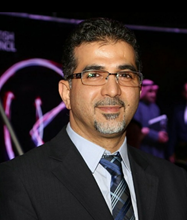About Us
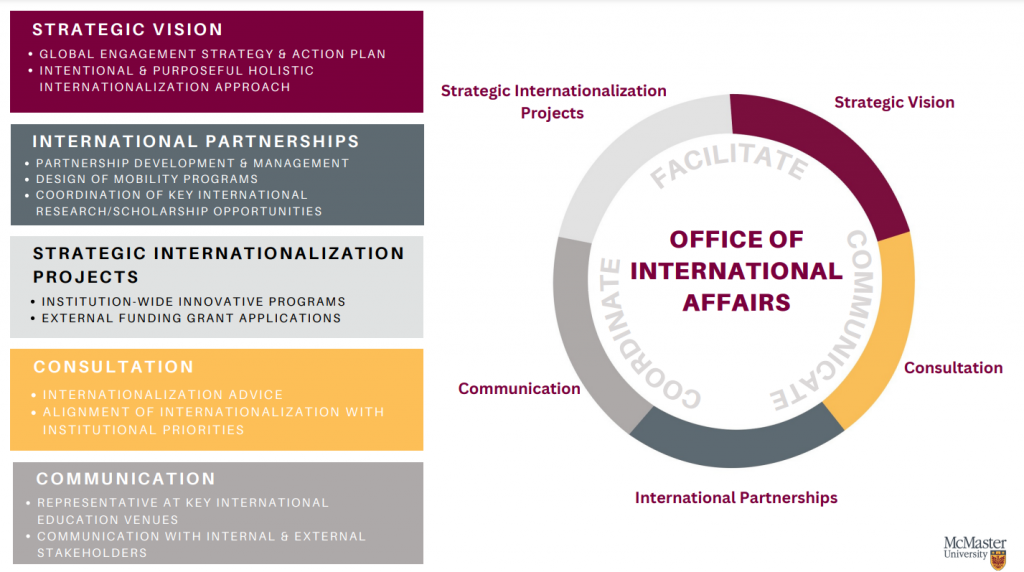
The Office of International Affairs is responsible for the development and realization of our Global Engagement Strategy. We achieve this through the exploration and facilitation of international institutional partnerships, advising and assisting McMaster faculty and staff with the strategic development and coordination of international activities, and creating opportunities for McMaster faculty and staff for strategic international collaboration. In doing so, the Office of International Affairs prioritizes:
- Strategic Vision
- Consultation
- International Partnerships
- Communication
- Strategic Internationalization Projects
As articulated in our McMaster Model for Global Engagement: A Strategy Document, we pursue an approach to global engagement informed by our motivation to:
- cooperate for peaceful coexistence and mutual benefit
- meet international demand for the University’s expertise in research and education
- fulfill the civic mission of the University
Read more about the Office of International Affairs in the 2023 OIA Profile Document.
The Office of International Affairs reports to the Office of the Provost and Vice-President (Academic).
People
Information Box Group
Dr. Bonny Ibhawoh
FRSC
Vice-Provost, International Affairs
Dr. Bonny Ibhawoh is Professor and Senator William McMaster Chair in Global Human Rights at McMaster University, Canada. He is a United Nations Human Rights Expert serving on the UN Expert Mechanism on the Right to Development in the UN Human Rights Office in Geneva. With over 30 years of experience as a human rights educator, policymaker, and practitioner, he has taught in Universities in Africa, Europe, the United States and Canada. He is the Project Director of the Confronting Atrocity Project, and Participedia, a global scholarly network on public participation and democratic innovation. He is a Fellow of the Royal Society of Canada.
Paul Leegsma
Manager, Strategic Initiatives and Special Projects

Paul Leegsma
Manager, Strategic Initiatives and Special Projects
Dr. Bonny Ibhawoh
FRSC
Vice-Provost, International Affairs
Dr. Bonny Ibhawoh is Professor and Senator William McMaster Chair in Global Human Rights at McMaster University, Canada. He is a United Nations Human Rights Expert serving on the UN Expert Mechanism on the Right to Development in the UN Human Rights Office in Geneva. With over 30 years of experience as a human rights educator, policymaker, and practitioner, he has taught in Universities in Africa, Europe, the United States and Canada. He is the Project Director of the Confronting Atrocity Project, and Participedia, a global scholarly network on public participation and democratic innovation. He is a Fellow of the Royal Society of Canada.
Dr. Bonny Ibhawoh
FRSC
Vice-Provost, International Affairs
Dr. Bonny Ibhawoh is Professor and Senator William McMaster Chair in Global Human Rights at McMaster University, Canada. He is a United Nations Human Rights Expert serving on the UN Expert Mechanism on the Right to Development in the UN Human Rights Office in Geneva. With over 30 years of experience as a human rights educator, policymaker, and practitioner, he has taught in Universities in Africa, Europe, the United States and Canada. He is the Project Director of the Confronting Atrocity Project, and Participedia, a global scholarly network on public participation and democratic innovation. He is a Fellow of the Royal Society of Canada.
Paul Leegsma
Manager, Strategic Initiatives and Special Projects
Paul Leegsma
Manager, Strategic Initiatives and Special Projects
Global Engagement Strategy 2025-2030
Our commitment to a global future
Global challenges today know no borders, and they cannot be solved in isolation. As one of Canada’s most research-intensive universities, McMaster is uniquely positioned to make a difference.
We seek transformational outcomes for McMaster’s global engagement:
- Build a globally engaged community that thrives on diversity and inclusion.
- Accelerate high-impact research and scholarship that spans disciplines, sectors and borders.
- Embed institution-wide supports to promote and measure global engagement initiatives.
Global Engagement Goals
Actionable steps:
- Recognize and reward the contributions of our multicultural and transnational communities and acknowledge their unique perspectives.
- Advocate for policies and practices that ensure human rights, equity, equality and dignity for all.
- Continue to be a lead provider of educational services through partnerships, consulting, and made-at-McMaster training programs in support of Global Affairs Canada’s International Education Strategy.
- Strengthen funding and support mechanisms for international students and scholars impacted by conflict, war, and human rights abuses around the world.
- Promote constructive dialogue and self-development opportunities for faculty, staff, alumni and students to help them navigate complex global and local issues. One forum for doing this is the McMaster Dialogues on Global Challenges.
Goal 2: Create a welcoming environment that thrives from diverse, inclusive, and global perspectives
Actionable steps:
- Ensure academic, social and career counselling is student-centred, high-impact, holistic, and culturally and globally responsive.
- Embed diversity, equity and inclusion into all hiring and promotion, and incentivize staff and faculty to engage in activities that address biases.
- Create culturally responsive initiatives that help international students thrive.
- Widen our scope for international recruitment to include students from global regions and countries
Actionable steps:
- Convene a University-wide working group to review and ensure best practices in tracking and reporting student, staff and faculty mobility.
- Strengthen the University’s travel risk management and mitigation processes.
- Increase the number and diversity of students participating in McMaster’s mobility programs (both inbound and outbound), with a focus on under-represented students and diversification of geographical locations.
- Tap new sources for increased internal and external funding for visiting scholars, student mobility bursaries, and fellowships and grants in support of global learning.
Actionable steps:
- Support and sustain faculty efforts to internationalize the curriculum through innovative, forward-looking academic and co-curricular programs that promote a global focus.
- Expand learning and self-development opportunities for faculty members to champion global engagement in their teaching, share international points of view, and facilitate connections with local, national and international collaborators.
- Explore and communicate new avenues for seed funding that will enable members of the McMaster community to realize global learning initiatives.
- Enable individual faculties/departments to build internal capacity and readiness to support and respond to internationalization and global engagement. This includes leveraging international partnerships of the McMaster Library, the McMaster Museum, Nuclear Reactor and many others.
- Enhance our systems to celebrate and reward members of our community who are advancing global learning in their teaching and service.
- Create campus-wide opportunities for cross-faculty dialogue to facilitate knowledge dissemination and foster interdisciplinary international interactions.
Actionable steps:
- Leverage the rich, multi-dimensional strengths of our institution to initiate and pursue collective-action solutions to contemporary world problems in support of the University’s Global Research strategy.
- Spearhead at least five large-scale, high-impact international collaborations that maximize McMaster’s global impact in research, educational exchange/curricular development, or service. The first of such major collaboration is the International Youth Internship Program funded by Global Affairs Canada.
- Advance McMaster’s objectives toward achieving United Nations’ Sustainable Development Goals by increasing participation in high-profile international forums and improving measurements to track and communicate our progress.
- Partner with Indigenous members and the McMaster and broader community to identify new – and expand existing – global opportunities that address the lived experiences of Indigenous peoples.
- Cement McMaster’s global stature and promote dialogue on shared local and global challenges by ensuring our list of McMaster Experts is up-to-date and enriched with details about our international efforts.
Actionable steps:
- Expand funding available through the University’s existing grant mechanisms to stimulate new international research and teaching partnerships that align with the University’s Global Research Strategy.
- Ensure the success of complex international partnerships by facilitating approvals and providing key administrative support.
- Incentivize academic and research faculty, including early career researchers, to engage in international activities by ensuring the value of these activities is recognized in the University’s merit, tenure and promotion policies.
- Empower faculty by providing seminars and workshops with funders, information about international grant opportunities, and access to local, national and global connections.
- Ensure student research contributions from the undergraduate to PhD level are seamlessly and effectively integrated into McMaster’s global research agenda, collaborations, and individual Faculty priorities through initiatives such as the OIA Research Internship Program.
- Foster interdisciplinary international interactions.
Actionable steps:
- Leverage existing platforms (i.e. Research Impact newsletter) and resources, including new digital strategies, to engage international audiences, build community and promote international initiatives, partnerships and recruitment.
- Expand opportunities to engage alumni, parents, scholars and donors around the world to learn about McMaster’s work on global issues and act as global ambassadors for the University.
- Expand the participation of faculty and staff in the McMaster Global Ambassador Program.
- Create new fundraising avenues to mobilize our international community to become collaborators and equal partners in our mission to create a truly global university.
OIA Summer Programs
2024 In-Person and Online Summer Programs
We are pleased to announce that information for our in-person summer programs (as well as specialized programs online) is now available. See below for brochures on specific programs. If you have any questions about the programs or are interested in discussing other specialized programs, please contact Ms. May Zhai (chenmay@mcmaster.ca) for more information.
The Office of International Affairs offers a variety of summer English programs created to give students an experience of student life, studies, and research at McMaster University. Our programs are also intended to motivate students to come to McMaster for further studies or research collaboration. Information about specific programs can be found in the brochures below.
English and Cultural Immersion Program (IN-PERSON)
2024 McMaster Summer English and Cultural Immersion Program – July
2024 McMaster Summer English and Cultural Immersion Program – July (Chinese)
2024 McMaster Summer English and Cultural Immersion Program – July (Japanese)
2024 McMaster Summer English and Cultural Immersion Program – August
Specialized Summer Programs (IN-PERSON)
2024 Specialized Summer English Program with eHealth focus
2024 Specialized Summer Successful Strategies and Effective Communication for Entrepreneurs
2024 McMaster Summer English Program with Entrepreneurship and Innovation Focus – July
2024 Summer Strategic Digital Transformation for Entrepreneurs – July
Specialized Summer English Programs
We offer a variety of specialized programs for university students (undergraduate and graduate level) and faculty. These programs combine specialized instruction in subject areas in various fields of Health Sciences, Engineering, Humanities and Business with an optional English (ESL) & Cultural Immersion pre-course section. The program length can be customized from 1 to 4 weeks. Most programs are scheduled between the second week of July to the second week of August. Please be aware that although we may accept individual students for these programs, we typically create the programs to fit the needs of university student or faculty groups.
We currently offer programs in e-Health, Entrepreneurship & Innovation and Problem-Based Learning (with Introduction to Evidence-Based Medicine). See further details below.
If you have any questions after reading below, please don’t hesitate to contact us at oia@mcmaster.ca for more information or to discuss your customized program interests.
Expandable List
This popular program provides participants with an opportunity to learn essential concepts in Entrepreneurship and Innovation, including: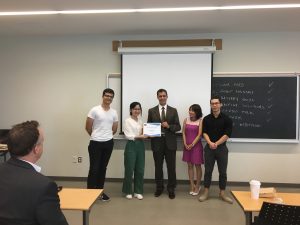 Entrepreneurial Opportunity Identification, Leadership for Innovation, Enterprise Opportunity Development, and Business Launch and Development. The program culminates in a Start-up Pitch Competition which will provide awards to the 1st, 2nd, & 3rd place winners.
Entrepreneurial Opportunity Identification, Leadership for Innovation, Enterprise Opportunity Development, and Business Launch and Development. The program culminates in a Start-up Pitch Competition which will provide awards to the 1st, 2nd, & 3rd place winners.
The pre-course section includes 1-2 weeks of intensive English practice with an emphasis on developing a strong foundation of English language skills relevant to entrepreneurship and innovation topics.
Participants should be current university students at the graduate or senior undergraduate level. Our programs are taught by expert McMaster faculty and the program is readily applicable to fields of engineering, design and business.
This program offers an intensive introduction to e-Health, including lectures and discussions on topics such as Health Research Methods,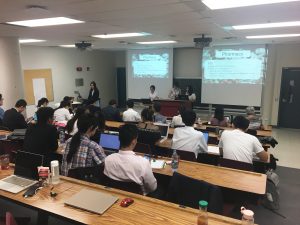 Health Policy, Health Economics, Public & Population Health, Health Informatics, Health Technology Assessment and Health Data Mining and applications for AI. The program culminates in each student developing a presentation of a process map which demonstrates their understating of e-Health concepts, specifically by detailed explanation of the role of selected e-health technologies in patient “care paths”.
Health Policy, Health Economics, Public & Population Health, Health Informatics, Health Technology Assessment and Health Data Mining and applications for AI. The program culminates in each student developing a presentation of a process map which demonstrates their understating of e-Health concepts, specifically by detailed explanation of the role of selected e-health technologies in patient “care paths”.
The pre-course section includes 1-2 weeks of intensive English practice with an emphasis on developing a strong foundation of English language skills relevant to e-health and health policy.
Participating students should be at the graduate or senior undergraduate level in the health sciences, medical or related fields. The program is taught by a team of expert McMaster faculty from the fields of Health Sciences, Social Sciences and Business.
This programs offers a 1-2 week introduction to Problem-Based Learning (PBL), a globally adopted pedagogy for medical education first 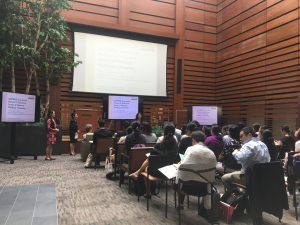 developed at McMaster University. It includes lectures and discussions on the concepts of PBL and its application in specific medical education contexts, such as perioperative outcomes. The program also includes an overview of current issues in medical education as well as an introduction to Evidence-Based Medicine (EBM).
developed at McMaster University. It includes lectures and discussions on the concepts of PBL and its application in specific medical education contexts, such as perioperative outcomes. The program also includes an overview of current issues in medical education as well as an introduction to Evidence-Based Medicine (EBM).
This program is offered to professionals, educators and administrators in the health sciences. This program is taught by expert McMaster faculty from our world-renown Faculty of Health Sciences.
English & Cultural Studies (ESL)
For students (high school or undergraduate) who want to improve their English in an English-speaking environment at a Global Top 100 university. Our program also includes great opportunities to experience Canadian culture and visit world-renowned sites such as Niagara Falls. We offer 4-week, 3-week, and 2-week programs. If you have any questions after looking at the application form and information brochures, please don’t hesitate to contact May at chenmay@mcmaster.ca, or Paul at leegsmp@mcmaster.ca.
Expandable List
Our Intensive English Summer Programs are designed for pre-university and university students abroad who would like to combine a high quality English language development program with an experience of Canadian culture. Classroom activities integrate listening, reading, speaking and writing skills at an appropriate level from beginner to advanced. 
In addition to in-class ESL instruction, students will enjoy activities in small groups led by McMaster University students. These activities are both educational and fun, and help to apply and improve students’ language abilities while introducing them to different aspects of Canadian life. Activities range from organized sports events, to trips to major shopping centres, movie theatres and restaurants, where students will have many opportunities to practice their English in real-life settings.
Students will also have the opportunity to experience Canada’s beautiful outdoors with trips to places of special scenic interest such as the Royal Botanical Gardens. We will arrange trips to Niagara Falls, the CN Tower, the Royal Ontario Museum and other places of interest.
- 30 hours a week of language instruction (15 hours in class, 12.5 hours applied practice per week)
- highly qualified and experienced instructors
- small, friendly classes assure individual attention for students
- afternoon tutorials taught and facilitated by McMaster graduate students
- lessons include reading, writing, academic vocabulary and presentations
- welcome and graduation ceremony
- completion / achievement reports available upon arrangement
- accommodation on campus in university residence
- use of university facilities and services, including Wi-Fi
- visits to local historic and scenic sites
- full schedule of organized excursions and recreational activities (a three-day sight-seeing trip to Quebec/Thousand Islands, is an optional extra)
| ESL Program | Dates | Fee (CAD) |
| 4 week | July 7 – August 4, 2024 | $4,800 |
| 3 week | July 14 – August 4, 2024 | $4.400 |
| 2 week | July 21 – August 4, 2024 | $3,900 |
| OPTION: Eastern Canada Trip: (based on double occupancy) | $750 | |
Program fees include: tuition, meal card (value varies by program), accommodation,
excursions, airport pick-up and drop-off, access to recreational facilities,
and university health insurance.
Payment Information: A non-refundable deposit of CAD $300.00 must accompany the
application form. The deposit should be in the form of a certified Bank Cheque or Money Order payable to McMaster University. The balance must be paid one month before the beginning of the program.







-150x150.jpg)
